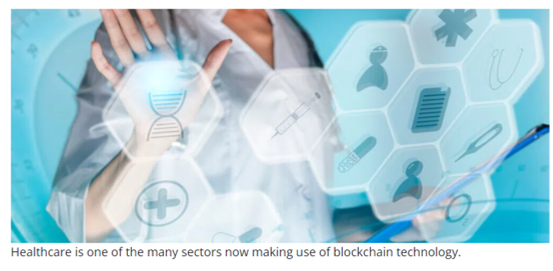K
Kathleen Martin
Guest
Blockchain technology has been gradually disrupting business sectors over the last few years, bringing strong data security for all assets stored on its infrastructure. No longer solely the realm of crypto, blockchain is now being utilised by healthcare providers, keeping patient records protected and bolstering collaboration. In this article, we take a closer look at the key blockchain technology applications in healthcare today.
Health information exchanges
Many health authorities have introduced the concept of Health Information Exchanges (HIEs), to enable patients, doctors, and other staff to securely access and digitally share medical information with each other. This can not only improve speed, quality, and safety of patient care, but also deliver a reduction in costs.
While complexities around security and privacy, along with inefficiencies brought by legacy healthcare infrastructure, have often made secure data transfer difficult, the decentralised nature of blockchain prevents individuals from tampering with assets.
“Blockchain technology is essentially a digital ledger or database for recording information. It is extremely difficult to alter, cheat or hack, and it is already changing digital world concepts such as ownership, privacy, trust and collaboration,” said Jonas Lundqvist, CEO of private blockchain provider, Haidrun.
“Although the mechanics of blockchain are extremely complex, the concept is straightforward enough: to decentralise data storage so that it cannot be controlled or manipulated by a single actor. Records or transactions are verified using an advanced consensus algorithm, and then cryptographically sealed into data blocks, to provide a time-stamped and immutable, single version of the truth.
“With certain types of blockchain, data access can be limited by the patient who can then chose to share relevant parts of their personal information with providers. In this way, a potential hacker cannot simply use a single patient’s private key to access broad sets of data. Instead, the bad actor would need to steal multiple users’ private keys to obtain any significant volume of valuable information. All users within one blockchain can keep their own copy of the ledger or database.”
Continue reading: https://www.information-age.com/blockchain-technology-applications-healthcare-123498663/
Health information exchanges
Many health authorities have introduced the concept of Health Information Exchanges (HIEs), to enable patients, doctors, and other staff to securely access and digitally share medical information with each other. This can not only improve speed, quality, and safety of patient care, but also deliver a reduction in costs.
While complexities around security and privacy, along with inefficiencies brought by legacy healthcare infrastructure, have often made secure data transfer difficult, the decentralised nature of blockchain prevents individuals from tampering with assets.
“Blockchain technology is essentially a digital ledger or database for recording information. It is extremely difficult to alter, cheat or hack, and it is already changing digital world concepts such as ownership, privacy, trust and collaboration,” said Jonas Lundqvist, CEO of private blockchain provider, Haidrun.
“Although the mechanics of blockchain are extremely complex, the concept is straightforward enough: to decentralise data storage so that it cannot be controlled or manipulated by a single actor. Records or transactions are verified using an advanced consensus algorithm, and then cryptographically sealed into data blocks, to provide a time-stamped and immutable, single version of the truth.
“With certain types of blockchain, data access can be limited by the patient who can then chose to share relevant parts of their personal information with providers. In this way, a potential hacker cannot simply use a single patient’s private key to access broad sets of data. Instead, the bad actor would need to steal multiple users’ private keys to obtain any significant volume of valuable information. All users within one blockchain can keep their own copy of the ledger or database.”
Continue reading: https://www.information-age.com/blockchain-technology-applications-healthcare-123498663/

